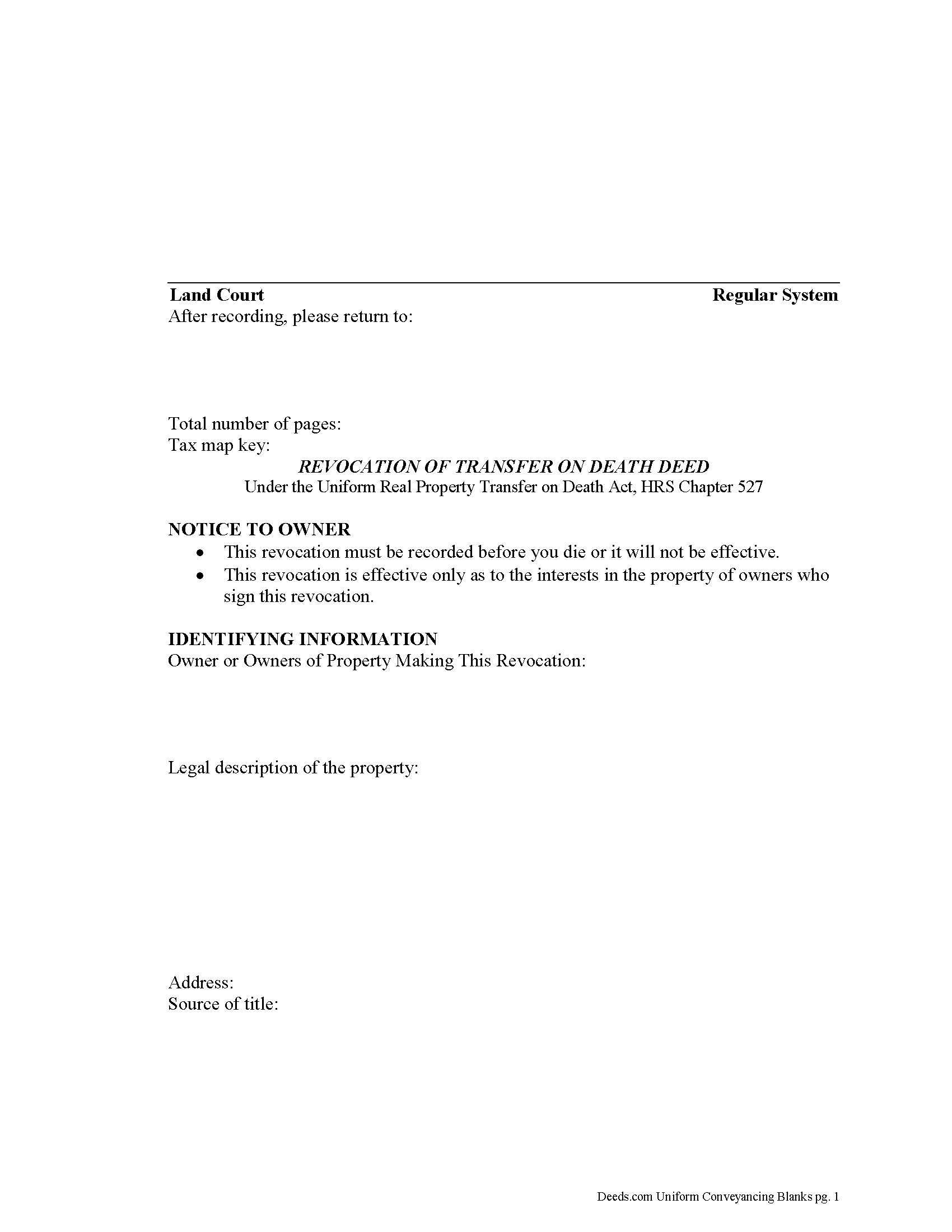Download Hawaii Transfer on Death Revocation Legal Forms

Hawaii Transfer on Death Revocation Overview

In 2011, Hawaii enacted its version of the Uniform Real Property Transfer on Death Act (URPTODA), found at Chapter 527 of the Hawaii Revised Statutes.
Along with Hawaii, a growing number of states are choosing to adopt the provisions of the URPTODA. The new law allows landowners to direct the distribution of what is often their most significant asset, their real estate, with a correctly executed and recorded transfer on death deed (TODD).
Transfer on death deeds are nontestamentary, which means ownership of the property passes to the beneficiary without instructions in a will or the need for probate (5277). Unnecessary conflicts are likely to add confusion and expense, so property owners should ensure that their wills and TODDs contain the same instructions.
The named beneficiary gains no present rights to the property, only a potential future interest. Instead, the transferors retain absolute control during their lives. This includes the freedom to use the property in any lawful manner, to sell or transfer it to someone else, and to modify or revoke the intended transfer on death (52712). These details, along with the fact that TODDs only convey the property rights remaining, if any, at the owner's death, explain why they do not require notice to or consideration from the beneficiaries (52710).
Revocation is an important feature of transfer on death deeds because it allows the owner to easily respond to a change in circumstances. At 52711, the statute outlines the three methods available for changing or revoking a recorded transfer on death deed, by executing and recording:
- a new TODD
- a revocation form
- a deed (example: warranty deed) that conveys title to someone else and expressly revokes all or part of the TODD
To preserve a clear chain of title, it makes sense to file a revocation form when changing a previously recorded transfer on death deed or selling the property outright. This extra step will add an end point for the potential transfer, simplifying future title searches prior to selling or mortgaging the property.
Since each circumstance is unique, contact an attorney with specific questions or for complex situations.